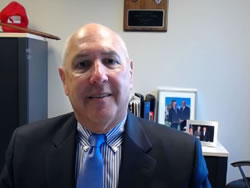2/14/2011· Insurance
Agents Beware: Due Diligence Is Now Required
By: Michael Sapourn
Transactions between retail agents and brokers they place business through just became more labor intensive.
As originally published by IRMI, 2014
By: Frederick J. Fisher, JD, CCP
Tel: 310-413-6200
Email Mr. Fisher
The claims audit is the anathema of day-to-day claim operations. Nothing is more disruptive. Yet, if properly defined, nothing is more informative and helpful in improving a claim management program. This article will examine the need for a regular auditing program and provide a recipe for a three-dimensional approach to the process in order to maximize the accuracy of the audit results.
The need to conduct regular claims audits has already been widely discussed. With the magnitude of self-insured claims programs (including self-funded programs) and the millions of dollars spent on claim administration fees, what better way to verify whether the money spent has been justified or wasted? In essence, an audit of closed and open claims should accomplish several things.
First and foremost, a claim audit should provide verification of performance standards. Performance standards may be set by a contract between a principal and its claim administrator, or they may be based on what an experienced claims person would do under similar circumstances. The claim audit should review a number of items, as delineated below, to verify that claims are being handled consistently with whatever performance standards apply on the basis of practice and by contract.
Claim audits should also verify that reserves have been adequately set and are being monitored adequately and adjusted in a timely fashion. In view of new Accounting Standards Board requirements (FASB and GASB) that require the posting of reserves and incurred but not reported (IBNRs) losses on balance sheets, it is important that a claim audit verify the adequacy of reserves.
Finally, a claim audit should also verify the efficient use of the dollars being spent for claims handling and claim payments. A thorough audit will verify that claim expenses are being used to the best advantage.
These goals and objectives encompass both quantitative functions (e.g., verification of reserve levels) and qualitative functions (e.g., review of performance standards). These two types of claim audits are best analyzed separately, although both typically play a part in the audit process.
Frederick J. Fisher, JD, CCP, is the President of Fisher Consulting Group, Inc., a Professional Liability firm. Since his career began, Mr. Fisher focused on one vision: providing financial security to the client. The result was a successful 40 year career in Specialty Lines Insurance.
©Copyright - All Rights Reserved
DO NOT REPRODUCE WITHOUT WRITTEN PERMISSION BY AUTHOR.

2/14/2011· Insurance
Agents Beware: Due Diligence Is Now Required
By: Michael Sapourn
Transactions between retail agents and brokers they place business through just became more labor intensive.

4/28/2017· Insurance
Working With Expert Witnesses: Tips That Are Not In The Civil Rules
By: Frederick Fisher, JD, CCP, and Louie Castoria, Esq
Insurance defense attorneys inhabit a confusing world in which even the "routine case" may need an expert witness for trial or a consultant to help with an early evaluation for settlement purposes. The legal precedents, regulations, and such don't often say what the profession's standard of care in the community is in the exact situation.

8/28/2017· Insurance
By: Guy C. Hatfield
I have been active as an insurance agent/broker for 40 years. 20 years ago I was referred to an attorney by a fellow CPCU colleague to be a so called "expert". The case involved an agent who failed to provide workers compensation benefits to an ongoing commercial concern. I was hired by the plaintiff's attorney to opine on the conduct of the agent. Since this was a fundamental error on the part of the agent, the case was soon settled in favor of the plaintiff. This was my introduction to being an expert. I found I enjoyed the experience and it was a nice contrast to sales and insurance administration.




